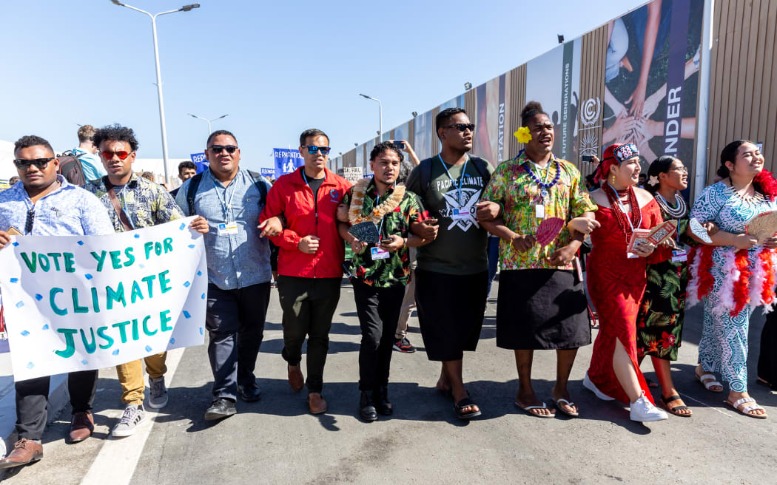The Pacific Islands Climate Action Network says while the Loss and Damage Fund deal reached at the COP28 summit in Dubai is significant, it does not go far enough.
PICAN’s Lavetanalagi Seru, who is in Dubai, said the fund is what climate justice advocates view as responding to the needs and the calls from climate frontline communities and countries.
But, he said, at the same time, it was not what they hoped for in terms of what the package.
“It’s not a package that we happy about where there’s definitely been compromises,” he said.
“For instance, around ensuring that the principle of common but differentiated responsibility is core and that human rights language is also embedded in the establishment of the loss and damage fund.”
Seru said the Pacific and many other climate vulnerable countries have been waiting for these for the last 30 years when Vanuatu proposed a loss and damage fund.
“What civil society, what many climate vulnerable and frontline countries and communities have been asking for, is a fund that is fit for purpose, without responding to the urgency to the scale and the need of our communities.
“And we’ve heard that there’s been some initial pledges by the UAE, the European Union, the UK, among others. But it comes to a mere US$400 million, what the loss and damage fund should be mobilizing is not millions, but billions.”
Seru said that is because of the scale of the impacts in many of these countries, both economic and non-economic losses and damage.
“It requires significant funding and support from the most developed and the most industrialized countries that caused the climate crisis in the first place.”
A series of small pledges that countries hoped would build throughout the conference to a substantial sum, including US$100 million (NZ$162m) from the COP28 host the United Arab Emirates, at least US$51m (NZ$82m) from Britain, US$17.5m (NZ$28.4m) from the United States, and US$10m (NZ$16.2m) from Japan.
Later, the European Union pledged US$245.3m (NZ$399m), which included US$100m pledged by Germany.
The pledges are currently insufficient because the level of capitalization beyond this initial finance should move to the billions, according to Seru.
“I think there is concerns around knowing the replenishment of the fund after this series of initial pledges, how are we going to sustain these.
“Overall, while it may seem like it’s a significant progress, for countries like Tuvalu, Kiribati, who are already grappling with sea level rise and the prospect of their people having to relocate…it’s not something that you could easily pay off with a cheque book,” he said.
SOURCE: RNZ.COM

